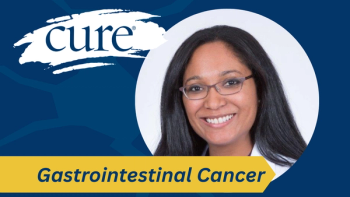
Merger of Two Groups Boosts Psychosocial Support Resources for Patients With Cancer
The merging of MyLifeLine.org with Cancer Support Community facilitates more comprehensive social and emotional support for patients and caregivers affected by cancer.
Marcia Donziger was 27 when she received a diagnosis of ovarian cancer. In the two decades since, she’s focused her career around making the cancer journey easier for others. The founder of MyLifeLine.org, a digital platform that helps patients communicate with loved ones and rally support, Donziger merged that website with a larger nonprofit organization, Cancer Support Community, last year, allowing the two groups to help patients in more comprehensive ways.
At the 2019 American Society of Clinical Oncology Annual Meeting, Donziger sat down with CURE® to discuss her journey.
CURE®: Tell us about your experience with ovarian cancer.Donziger: I was diagnosed when I was 27 years old and living in Chicago, and was treated with a hysterectomy and six months of chemotherapy.
Everything in my life changed, because I was 27 and embarking on a career and was newly married and trying to start a family. But cancer put a halt on all of those things. My new normal was getting divorced, because I realized that wasn’t the right relationship, so (I had to face) being single again and dating after cancer and dealing with the effects of
How did your experience inspire you to get involved with Cancer Support Community?
In 2007, I started an organization called MyLifeLine.org. We are a digital platform that provides an online support network for patients to easily connect with their caregivers, friends and family to get the help they need after a diagnosis. Then I found out about the Cancer Support Community. We were referring a lot of our patients to their programs, their helpline, educational materials and affiliates for in-person support, and in early 2018, we decided to merge our organizations to be more efficient and effective and provide better service to patients and their families. It’s been a great experience so far, and now we have all the Cancer Support Community resources integrated within the MyLifeLine.org platform.
In your work with these two groups, what are you most passionate about?
I’m passionate about making sure that patients have access to the psychosocial support they need, the social and emotional support, and that’s what the Cancer Support Community does so well. It’s not just about the physical treatment and the tumor type, but also about the rest of your life that wraps around cancer. Cancer turns one’s life around, upside down, inside out, and it’s a brutal experience, but there are so many resources out there that can help patients, no matter where they live. It could be an in-person support center if you’re nearby, or it could be over the phone — we have licensed mental health professionals that staff our Cancer Support Helpline — and we have online support. So, you’re really able to access so much support these days.
Are there any other programs, initiatives or efforts you think patients should know about?
If you’re going through cancer now or are a caregiver, I’d go to CancerExperienceRegistry.org, our research study of the psychosocial effects of cancer. We use that data to help us in our policy department to shape the health care laws that impact patients the most. Joining our Cancer Experience Registry is a really incredible way to give back. Also, to be able to mobilize your friends and family around you, go to MyLifeLine.org.
Within cancer centers, what are the most important services that help patients get through the treatment experience?
The
What is your biggest advice for people who’ve received a cancer diagnosis?
Don’t try to do it alone. There’s a lot out there for people. No matter what type, what age you are or where you live, you can access anything you want. I would start with our Cancer Support Helpline, which can help navigate you to the resources most relevant to you. Also, the primary caregiver needs to seek support. And make sure that you cast a wider net (to find) your network (of people willing) to help you…even though it’s not easy to accept help.




